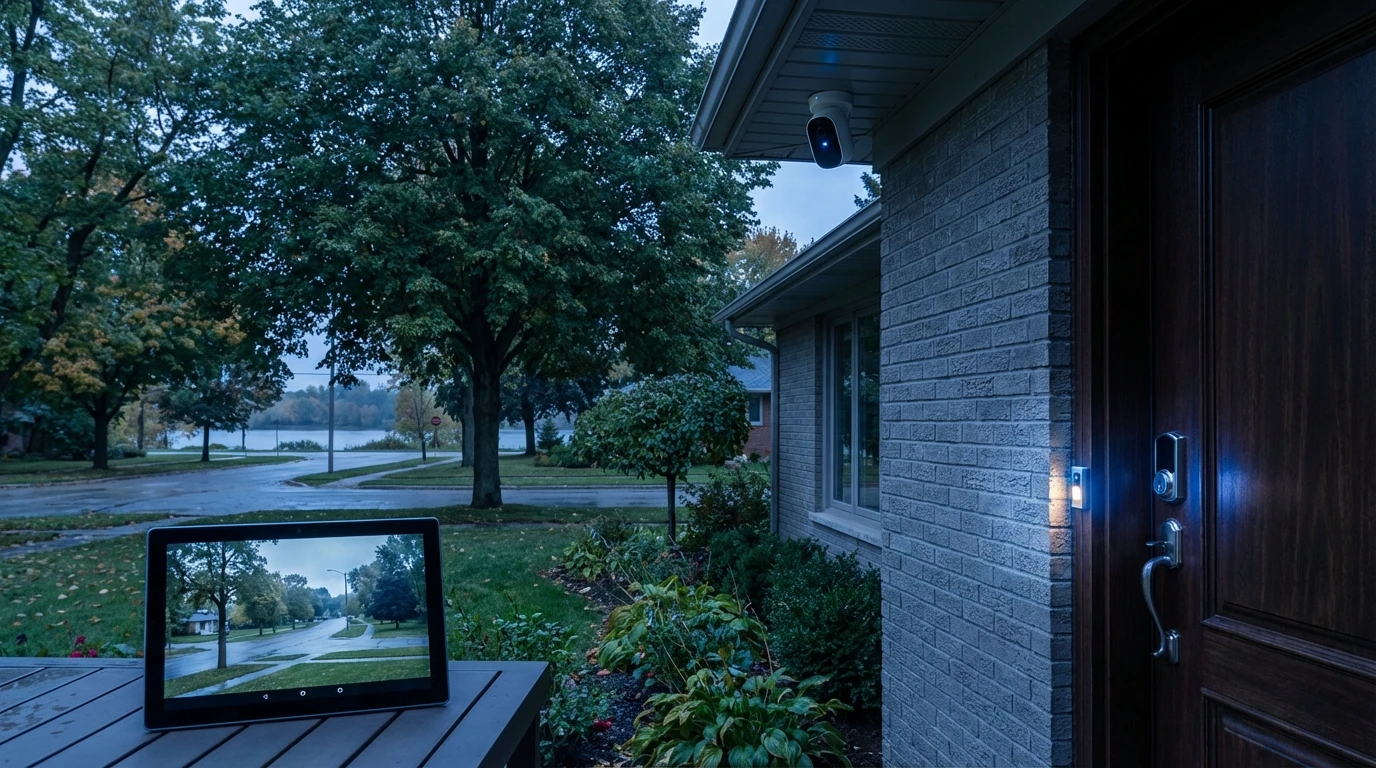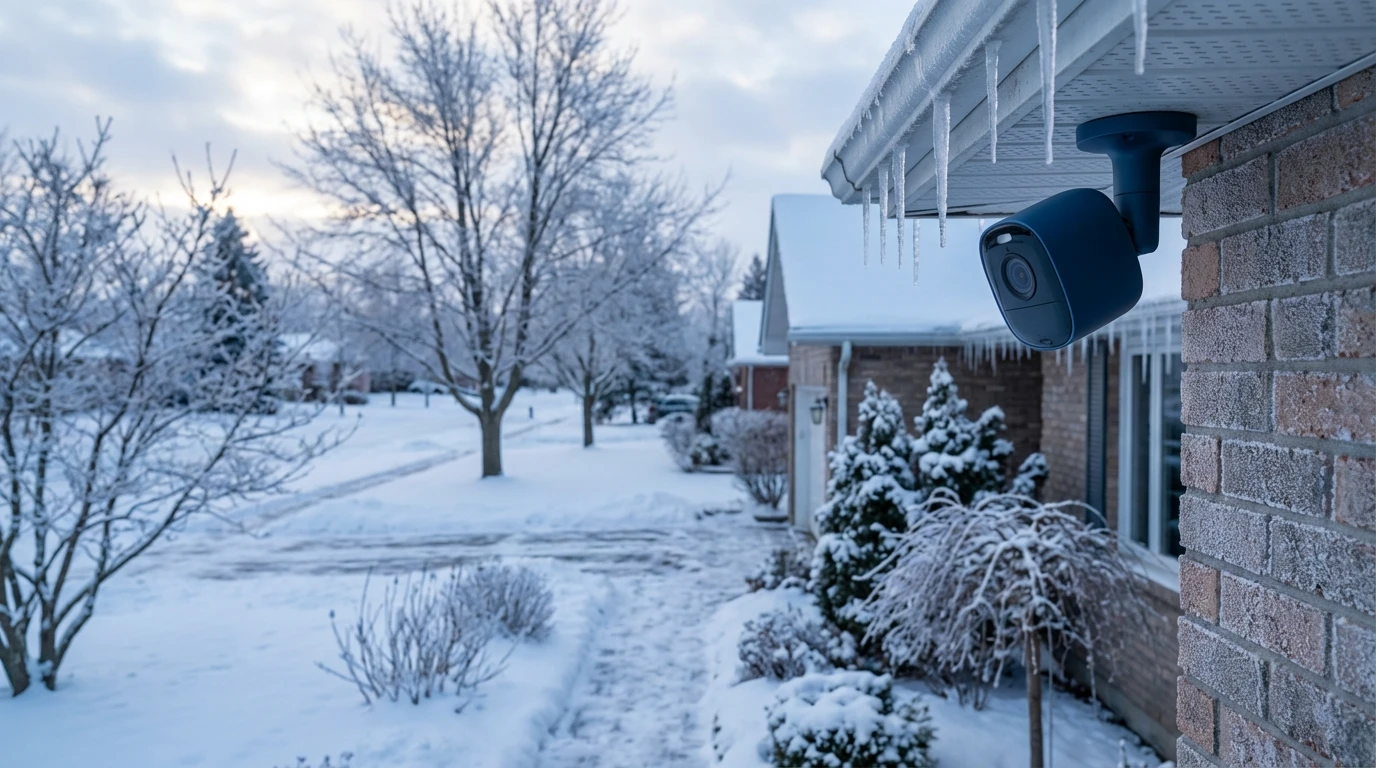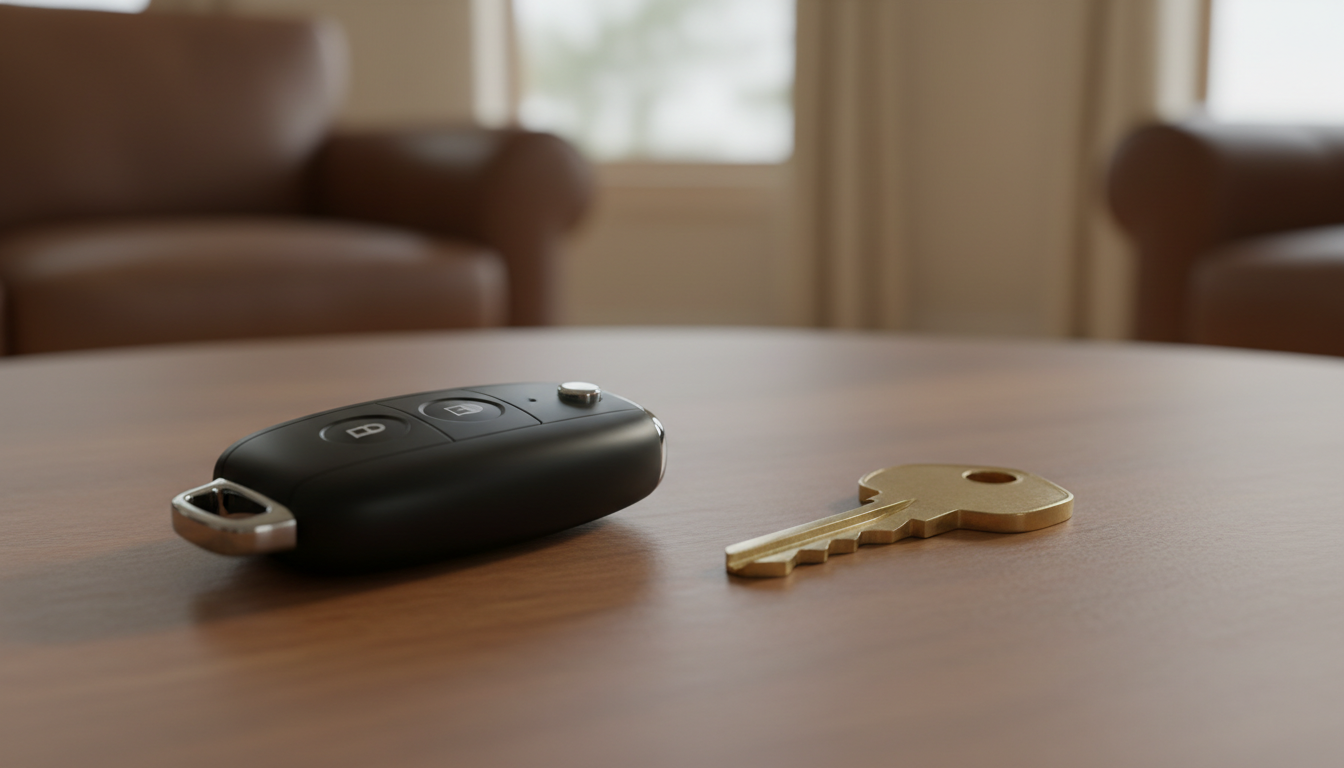When it comes to protecting your home or business, an alarm system is no longer optional—it’s essential. But here’s the question we hear all the time:
👉 Should you go with a monitored alarm system, where professionals are on watch 24/7, or a self-monitored system, where the responsibility falls on you?
Both have their place. But the difference comes down to one critical factor: when something goes wrong, who’s responding?
TL;DR (Quick Answer)
- Monitored Systems:
- ✅ 24/7 professional monitoring
- ✅ Immediate dispatch to police, fire, or medical services
- ✅ Peace of mind even when you’re asleep, busy, or away
- 💲 Monthly fee, but worth it for businesses and families
- Self-Monitored Systems:
- ✅ Lower cost, no monthly monitoring fees
- ✅ Alerts sent directly to your phone via app or text
- ❌ You must decide what to do (call police, check cameras, ignore, etc.)
- ❌ Risk if you miss a notification
Bottom Line: Monitored = reliability and peace of mind. Self-monitored = budget-friendly, but risky.
What Are Monitored Alarm Systems?</h2>
Monitored systems connect your alarms to a professional monitoring center. When a sensor is triggered:
- A trained operator receives the signal instantly.
- They verify the threat and dispatch police, fire, or medical help.
- You also get notified, but the monitoring team acts even if you don’t.
Benefits for Businesses:
- Staff aren’t responsible for emergencies.
- Compliance and liability protection.
- Guaranteed response at all hours.
Benefits for Homeowners:
- Someone is watching while you’re asleep or traveling.
- Quick response to fire, break-ins, or medical emergencies.
- True peace of mind for families.
What Are Self-Monitored Alarm Systems?
Self-monitored systems skip the professional team. Instead:
- Alerts go directly to your phone or app.
- You decide whether to call emergency services.
- No monthly monitoring fees.
Benefits for Homeowners:
- Lower cost.
- Good for small apartments or DIY setups.
- You stay in control of every decision.
Drawbacks for Businesses:
- Employees may miss alerts or panic in an emergency.
- Puts liability on the business owner.
- No guarantee of action if your phone is off, dead, or on silent.
Pros & Cons Comparison
| Feature | Monitored Alarm Systems | Self-Monitored Alarm Systems |
|---|---|---|
| 24/7 Protection | ✅ Always monitored | ❌ Only when you check |
| Response Time | ✅ Immediate dispatch | ⚠️ Delays if you miss alerts |
| Monthly Cost | Higher | Lower |
| Best For Homes | Families, travelers, busy households | Apartments, budget setups |
| Best For Businesses | ✅ All businesses | ❌ Rarely recommended |
| Peace of Mind | ✅ Professionals always watching | ❌ You carry all responsibility |
Why Monitored Systems Are the Safer Choice
Emergencies rarely happen when it’s convenient. They happen:
- At 3AM when you’re asleep.
- While you’re on vacation.
- When your phone is on silent.
- During work hours when you’re in a meeting.
A monitored system ensures action is taken immediately, no matter what.
For businesses:
- Staff don’t have to make life-or-death decisions.
- Response time is faster and more reliable.
- Liability is reduced because emergencies are professionally managed.
For homeowners:
- Peace of mind that your family and property are always protected.
- No stress about missing alerts or second-guessing.
Common Problems with Self-Monitored Alarms (and How Monitored Solves Them)
| Problem | Risk | How Monitored Solves It |
|---|---|---|
| Missed Notifications | No response to real threats | Trained operators never miss an alarm |
| Uncertainty in Emergencies | Wasted time deciding what to do | Pros contact the right authorities instantly |
| Traveling or Sleeping | No protection if you’re unreachable | 24/7 monitoring never stops |
| Staff Reliance in Businesses | Panic, confusion, or ignored alerts | Monitoring removes the burden from staff |
| Stress & Responsibility | All on you | Professionals handle everything |
Cost vs Value Over Time
Yes, monitored systems have a monthly fee. But what do you really get for that investment?
| Factor | Self-Monitored | Monitored |
|---|---|---|
| Upfront Cost | Lower | Higher |
| Monthly Fees | Minimal or none | Yes |
| Reliability | Depends on you | Guaranteed |
| Risk of Missed Alarm | High | Very low |
| Business Liability Protection | ❌ None | ✅ Strong |
| Peace of Mind | ❌ Limited | ✅ Complete |
| Overall Value | Risky, cost-saving | Safer, long-term investment |
💡 Key Insight: One break-in, fire, or missed emergency could cost more than years of monitoring fees.
FAQ: Monitored vs Self-Monitored Alarm Systems
1. Can I monitor my own alarm without a company?
Yes, that’s what a self-monitored alarm is—you’ll receive alerts on your phone or app. But keep in mind: if you miss the alert, no one else will respond. That’s the biggest risk.
2. Do monitored systems still notify me directly?
Absolutely. You’ll still get phone or app alerts when something triggers your alarm. The difference is that a professional monitoring center is also alerted and can act immediately if you can’t.
3. Are monitored systems worth the monthly fee?
Yes. Think of it like insurance—you hope you never need it, but when you do, it can save thousands in damages or losses. One missed break-in or fire could cost far more than years of monitoring fees.
4. What happens if I ignore a self-monitored alert?
Nothing. The police, fire department, or medical responders won’t be called unless you make the call yourself. That’s why self-monitored systems carry so much risk.
5. Can businesses rely on self-monitored alarms?
Not safely. Businesses have more liability, larger properties, and staff who may not know how to respond in a crisis. A monitored alarm system is strongly recommended for every type of business.
6. Do monitored alarms reduce insurance premiums?
In many cases, yes. Because monitored systems reduce risk, some insurers offer discounts for homes and businesses with 24/7 monitoring.
7. How fast is emergency response with monitored alarms?
Instant. The monitoring center verifies the threat and contacts emergency responders right away—often faster than an owner could react on their own.
8. What about false alarms—will police still come?
Monitoring centers are trained to reduce false alarms. They often verify with you first before dispatching help. If it’s a real emergency, police or fire are dispatched immediately.
9. Can I switch from self-monitored to monitored later?
Yes, many systems can be upgraded. If you currently have self-monitoring and want professional monitoring, we can often transition your existing setup with minimal changes.
10. Do monitored alarms still work during power outages?
Yes. Most systems include backup batteries, and monitored systems also stay connected through cellular networks even if the internet goes down.
11. Are monitored systems only for large businesses?
Not at all. Monitored alarms are ideal for small businesses, nonprofits, schools, and residential homes too. The value is peace of mind—not just scale.
12. Is self-monitored good enough for small homes or apartments?
In some cases, yes. If you live in a small apartment and are always nearby, self-monitored could be enough. But for families, frequent travelers, or anyone with valuable property, monitored is a far safer option.
Final Verdict on Monitored vs Self-Monitored Alarm Systems
- Businesses: A monitored alarm system isn’t optional—it’s the only way to guarantee protection and reduce liability.
- Homeowners: While self-monitored may work for a small apartment, anyone with a family, valuables, or frequent travel should choose monitored.
👉 At the end of the day, the difference is simple:
- Self-Monitored = You’re on your own.
- Monitored = You’re never alone in an emergency.
Ready to Protect What Matters Most?
At C.E. Technology Solutions Ltd., we install professional monitored alarm systems for both businesses and homes in Sarnia and across Southwestern Ontario.
🔒 24/7 protection
🔒 Professional monitoring
🔒 Peace of mind👉 Request a Free Consultation Today or call us to speak with a local security expert.



